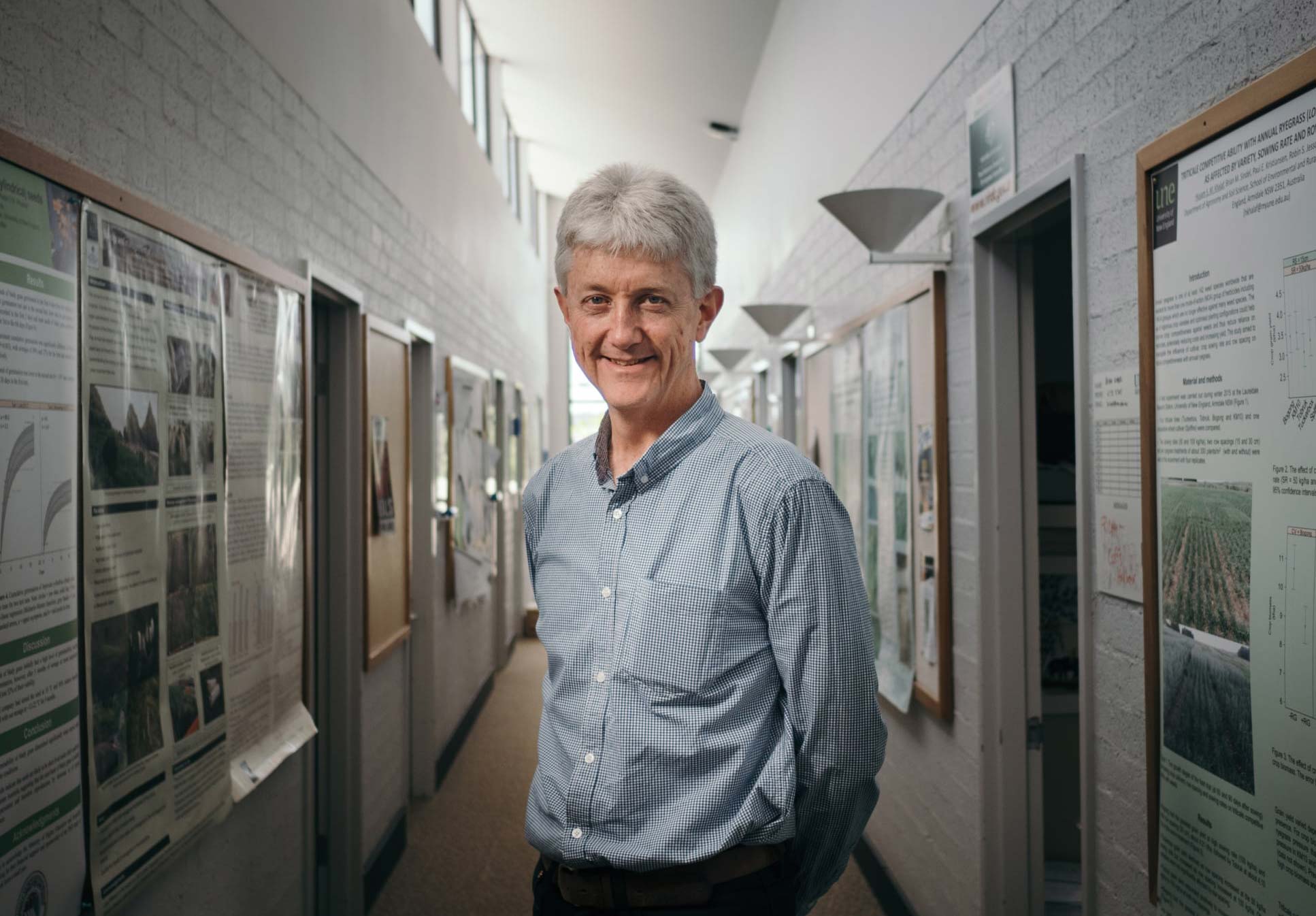1. Tell us about your career path to date…
I pursued Agricultural Science at The University of Sydney, followed by a Diploma of Education. After teaching Agriculture and Science at the high school level for a couple of years, I returned to The University of Sydney to complete my PhD. My doctoral research focused on the ecology and control of the invasive weed known as fireweed (Senecio madagascariensis).
Subsequently, I joined CSIRO in Canberra, where I spent four years investigating the application of native grasses for roadside revegetation programs.
Following this, I transitioned to the University of New England (UNE) in Armidale, located on the New England Tablelands in northern New South Wales, assuming the role of Lecturer in Weed Science. Throughout my tenure at UNE, I have remained dedicated to advancing academic knowledge in weed science. My responsibilities encompass teaching undergraduate agricultural students about weed management—an issue that incurs significant costs, amounting to $5 billion annually in Australia. Additionally, I oversee postgraduate student projects and conduct independent research into weed ecology and management.
My contributions extend beyond academia; I have held leadership positions in two Cooperative Research Centres (CRCs) focused on weed management in Australia. Furthermore, I was selected by UNE to participate in the planning stages of the Future Food Systems (FFS) CRC and have served as its Education Director since its inception.
2. What is your research area of expertise?
Weed science. While my students and I have delved into a diversity of research topics, generously supported by funding from both industry and government sources, perhaps the most exciting endeavour was a six-year venture funded by the Australian Antarctic Division, focusing on the ecology and potential management of weeds on sub-Antarctic Macquarie Island.
This project was a personal highlight for me, involving three immersive expeditions to the island, often aboard the Australian icebreaker Aurora Australis. The first expedition stands out as particularly memorable. Accompanied by a PhD student and two fellow scientists, our journey to the island spanned 21 days instead of the intended three. We travelled via Antarctica and embarked on a detour of three days to rescue a lone French sailor whose yacht had succumbed to a storm, leaving him adrift in a life raft in the vast expanse of the Great Southern Ocean.
Such experiences epitomise the unexpected and thrilling nature of sub-Antarctic research. Amid the cold, wet and windy environment of Macquarie Island, we found ourselves among millions of penguins and hundreds of thousands of seals. These encounters added an extra layer of fascination to our scientific pursuits, creating enduring memories of both the challenges and wonders of conducting research in such remote and dynamic landscapes.
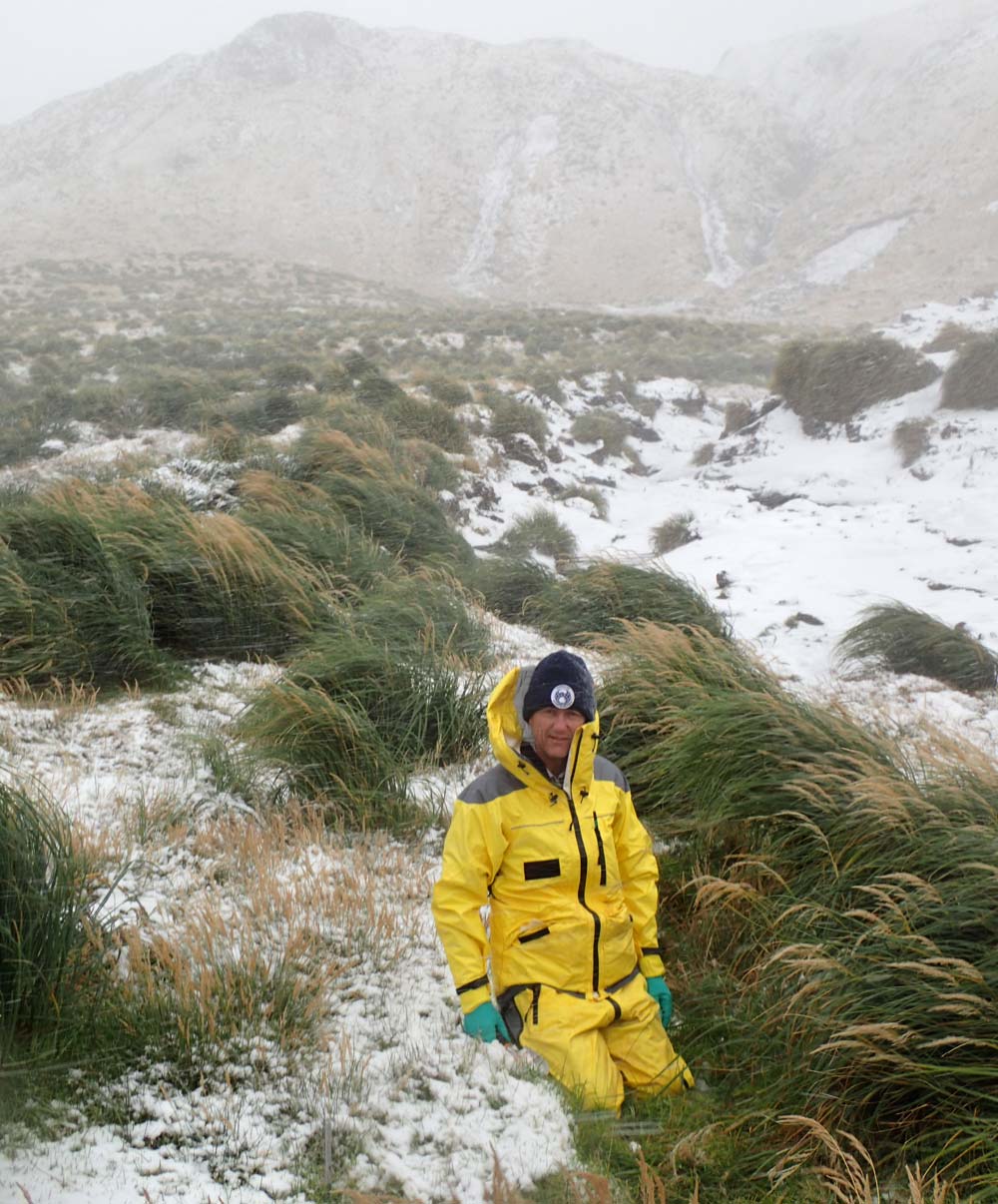
Professor Brian Sindel digging up weed seeds that have been buried to see how long they can survive alive in the harsh sub-Antarctic environment. Image courtesy of Brian Sindel.
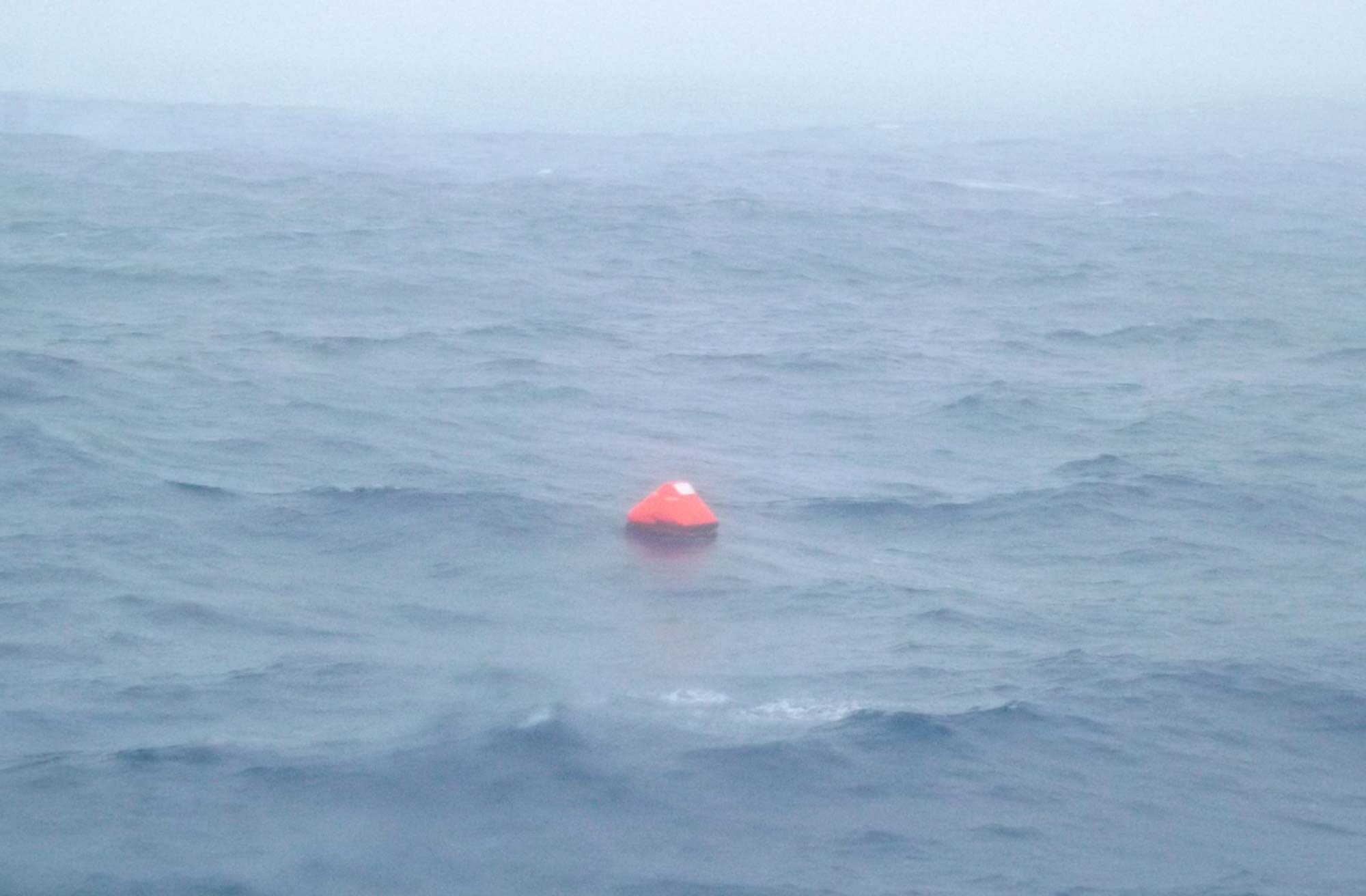
Brian’s first expedition to Macquarie Island was diverted in order to rescue a lone French sailor whose yacht had sunk in a storm in the middle of the Great Southern Ocean. The life raft had been dropped to him from an RAAF Hercules. Image courtesy of Brian Sindel.
3. Please tell us about your role as FFS Education Director…
As the Education Director for FFS, a significant aspect of my role is to oversee the selection, management, training and support of the 60 to 70 PhD students engaged in FFS during the course of its decade-long lifespan. This involves the assessment of applications and the allocation of scholarships, keeping track of student progress, facilitating participation in training workshop and fostering opportunities for students to showcase their work within the scientific realm and the wider community.
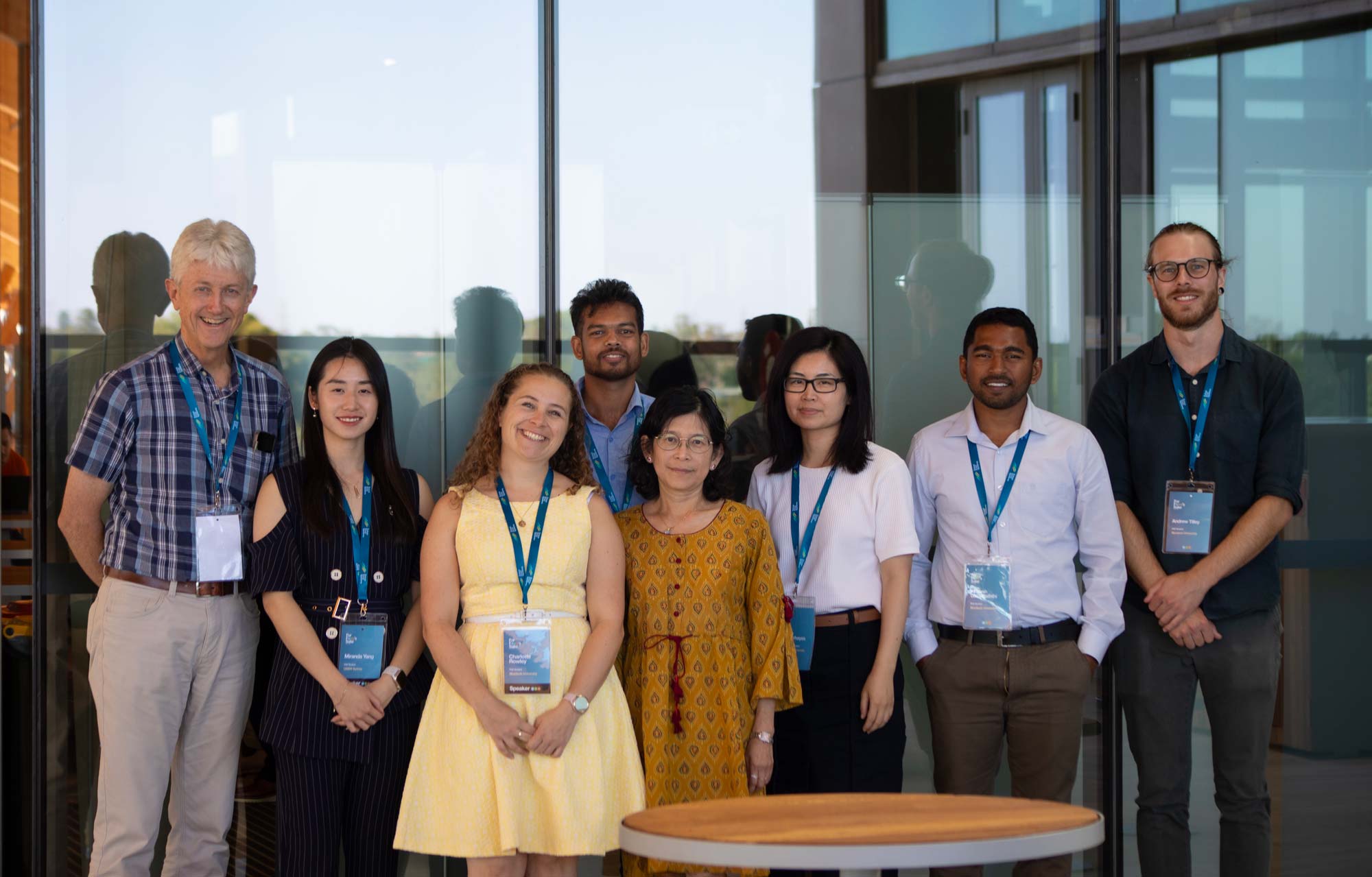
L-R – FFS Education Director Prof. Brian Sindel, FFS PhD students Miranda Yang, Charlotte Rowley and Namal Jayasuriya, FFS Research Portfolio Manager Maria Veronica Chandra-Hioe, PhD Dr Lijun Summerhayes, and FFS PhD students Mahesh Galappaththi and Andrew Tilley. Credit: Future Food Systems
4. What are the highlights of your current role?
One of the most rewarding aspects of my role undoubtedly lies in the dynamic exchanges I share with the vibrant, talented and diverse cohort of PhD students within FFS. Hailing from Australia and 12 other countries across the globe, these individuals bring a wealth of enthusiasm to our collaborative efforts. Witnessing their journey from project inception to successful completion, followed by their transition into meaningful roles, serves as a testament to the capacity-building ethos of FFS and its research partners.
5. What excites you about the future of research?
Research is really only possible because we live in a world of ingenious order. But when we start researching that order, we find amazingly intricate, finely-tuned and complex processes. For example, the processes by which plants and animals grow to produce our food, and then by which our bodies consume and extract nourishment from those foods for growth and wellbeing, I find fascinating. I am sure there are more exciting discoveries around the corner.
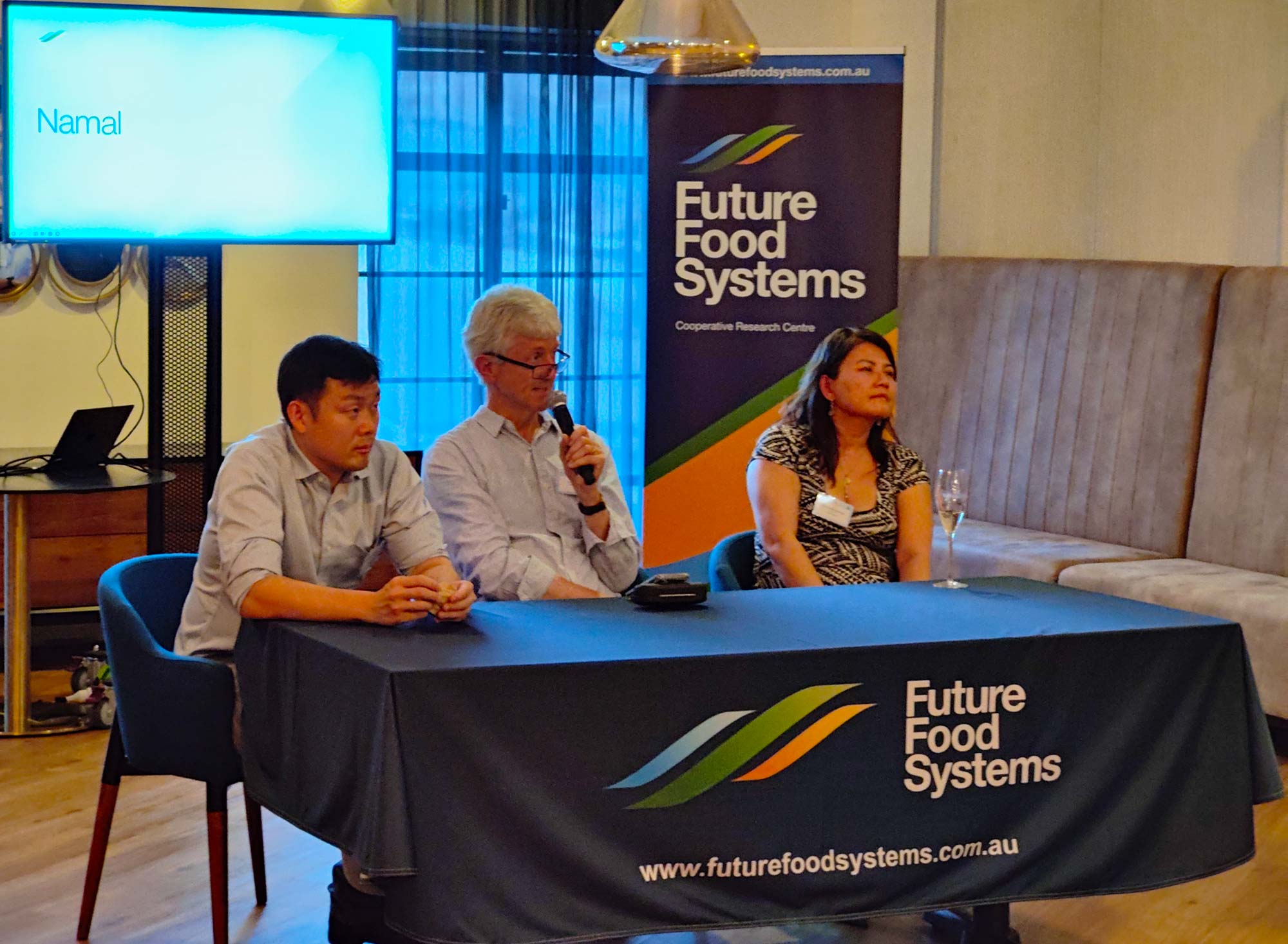
Dr Alex Soeriyadi, Prof. Brian Sindel and Prof. Cordelia Selomulya during the student pitches at the FFS Networking Night in December 2023. Credit: Future Food Systems
Lead image: Prof. Brian Sindel. Credit: University of New England


